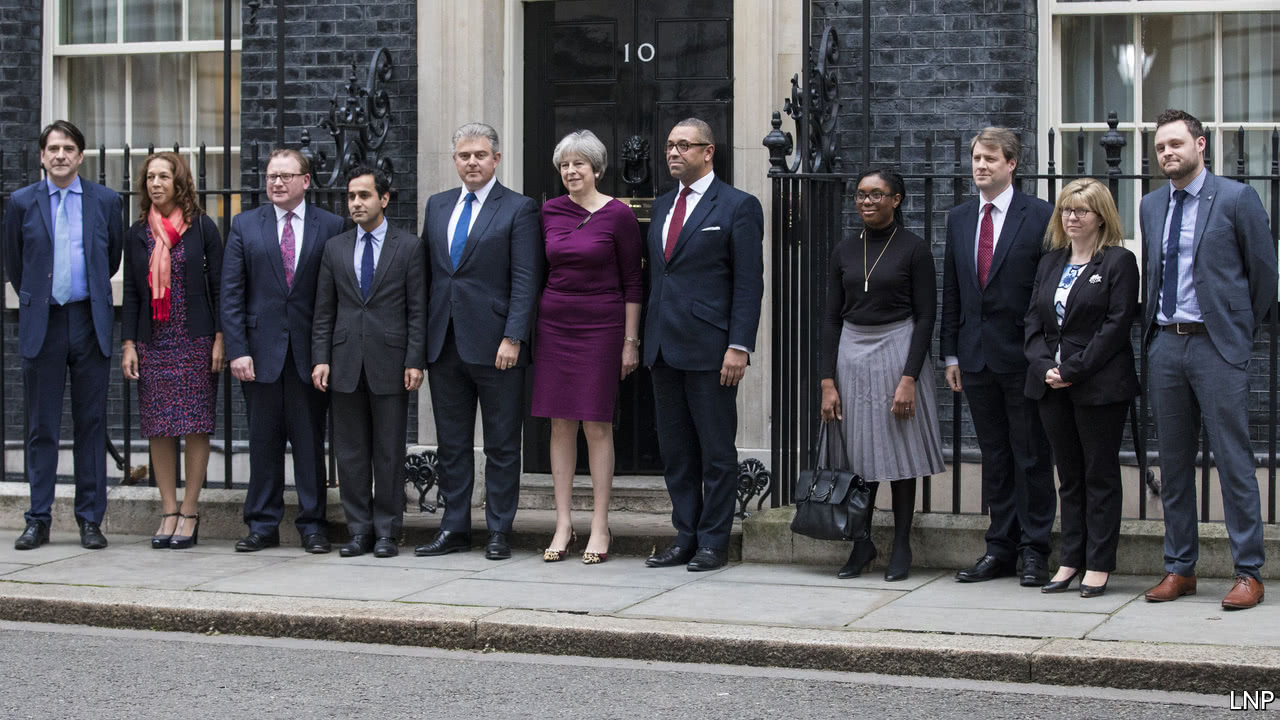TODAY’S Cabinet reshuffle was billed as a golden opportunity for Theresa May to achieve two things: stamp her authority on the Conservative Party after the debacle of the general election and regalvanise her party in order to meet the rising threat from Jeremy Corbyn. She failed spectacularly to achieve either goal.
The biggest change of the day is that David Lidington, a little-known figure from the Major administration, will replace Damian Green as secretary of state for the Cabinet Office, giving him the chairmanship of about twenty Cabinet Committees and the responsibility for co-ordinating policy. (Mr Lidington won’t have Mr Green’s important-sounding but largely meaningless title of deputy prime minister.) James Brokenshire will also retire as secretary of state for Ireland. But this is largely because of health problems (Mr Brokenshire needs a lung operation) rather than due to any political imperative. He will be replaced by another May loyalist, Karen Bradley.
Other than that, it was all much ado about nothing at the time of writing. The press spent the day in fevered speculation. Ministers paraded up and down Downing Street in what is supposed to be a walk of triumph or shame. And then Downing Street announced that it had decided to stick with things as usual. All the biggest beasts continue to pace up and down in the same cages: Philip Hammond at the Treasury, Amber Rudd at the Home Office, Boris Johnson at the Foreign Office. David Davis remains as minister for Leaving the EU. Jeremy Hunt spent two hours in Downing Street talking with the prime minister. But he came out in the same job as he came in—as minister of health. The biggest drama of the day was fittingly provided by something that didn’t happen: an official tweeted that Chris Grayling, the lacklustre transport minister, was being moved to become party chairman, provoking howls of disbelief from journalists before another official source tweeted that it had all been a mistake.
This non-reshuffle reinforced the sense that Mrs May is a prisoner of her party rather than its master. She’s not only too weak to get rid of charismatic incompetents such as Boris Johnson, who remains foreign secretary despite a succession of gaffes. She’s even too weak to move uncharismatic competents, such as Jeremy Hunt, who reportedly refused to move from the health department to the business department—or indeed to demote uncharismatic incompetents such as Greg Clark, who presumably remains at business because Mrs May couldn’t think of anybody to replace him when Mr Hunt refused to move.
Rather than reshaping her cabinet Mrs May seems to have devoted most of her energy to balance and presentation: preserving the balance of power between Brexiteers and Remainers in Cabinet (Mr Lidington shares Damian Green’s strong pro-Remain views, for example) and rebranding departments on the bizarre assumption that changing the name of things actually changes the reality. Two departments now have longer names than they did at the beginning of the day: the Department of Health is the Department of Health and Social Care and the Department of Communities has become the Department of Housing, Planning and Communities.
The one bright spot of the day was provided by Mrs May’s decision to sack Sir Patrick McLoughlin from his job as Chairman of the Party. Sir Patrick is well-liked in the Conservative Party. But he carries the can (along with the prime minister and her team) for the June election debacle. As the longest serving MP in parliament he is also out of touch with the new world of social media and twitter storms. Brandon Lewis is a good choice to replace him: he has a good command of social media and has the additional advantage of speaking with a strong regional accent. Mrs May has also provided him with some striking juniors such as James Cleverly, his deputy, and Kemi Badenoch, one of the sparkiest members of the 2017 intake.
